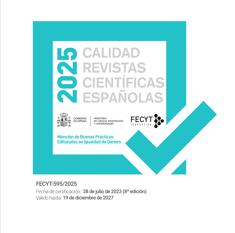Ulysses Syndrome in economical and political migrants in Mexico and the United States
DOI:
https://doi.org/10.15257/ehquidad.2016.0001Keywords:
Health, Migrants, Central Americans, Mexicans, Stress, Trauma.Abstract
The grief, stress and vulnerability associated with migration for political and/or economic reasons among Mexican and Central Americans was investigated through an exploratory, cross-sectional study. Data was collected from a sample of 100 (n=100) participants using an in-depth interview, the Ulysses Syndrome Scale, and the Patient Health Questionnaire (PHQ-9) in three locations: Ciudad Juarez and Mexico City, in the Republic of Mexico, and El Paso, Texas, United States of America. This is the first study to test the Ulysses Syndrome theory among migrants living in Mexico, and the U.S. Problems of adaptation associated with language and culture rated low among migrants in the three locations. Most of the migrants demonstrated resiliency and adaptation. However, the majority reported stress caused by loss or separation from family, change in social status, and physical or emotional risk. Study results demonstrated the presence of Ulysses Syndrome among migrants in the American continent.Downloads
Download data is not yet available.
Downloads
Published
2017-02-01
How to Cite
Moya, E. M., Chávez Baray, S. M., Esparza, Óscar A., Calderón Chelius, L., Castañeda, E., Villalobos, G., … Escobedo, V. (2017). Ulysses Syndrome in economical and political migrants in Mexico and the United States. EHQUIDAD. INTERNATIONAL JOURNAL OF WELFARE AND SOCIAL WORK POLICIES, (5), 11–50. https://doi.org/10.15257/ehquidad.2016.0001
Issue
Section
Artículos












